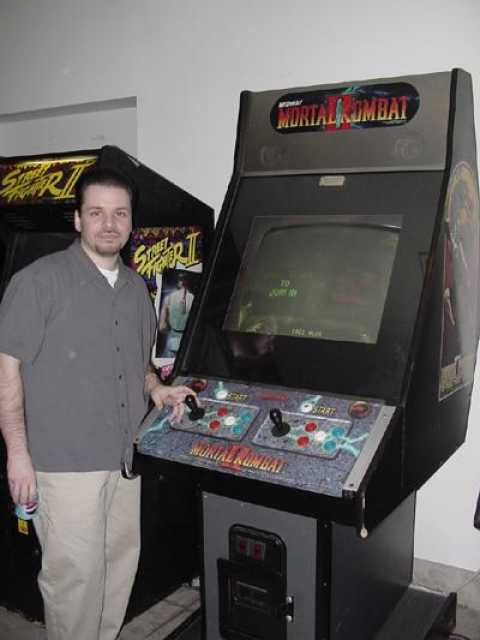Studio Gigante (pronounced "hee-gan-tay") was a video game development studio formed in 2000 based in Chicago, Illinois. The studio was created by Mortal Kombat co-creator John Tobias and fellow MK veterans, Josh Tsui & Dave Michicich, after all three departed Midway in 1999 during the development of Mortal Kombat: Special Forces. Tobias et al decided to leave behind Mortal Kombat, feeling the MK boom was nearing its end after 1997's critically panned Mortal Kombat: Annihilation motion picture along with the barely-lukewarm reception towards two 1997 video game entries, Mortal Kombat 4 and Mortal Kombat Mythologies: Sub-Zero.
 Co-founder John Tobias
Co-founder John Tobias
The studio put out two games during its lifespan. The first was a fighting game called Tao Feng: Fist of the Lotus released in March 2003. Microsoft published the game, making it a first-party game exclusive to the Xbox. It received a somewhat positive reception from reviewers, but ultimately got lost in the shuffle as Mortal Kombat: Deadly Alliance was released just a few months prior for all platforms. While no sales data is available, Feng did not sell enough to get a sequel approved by Microsoft.
The second game was a pro wrestling game called WWE WrestleMania 21. It released in April 2005 to coincide with the presentation of World Wrestling Entertainment's yearly mega-event. Published by THQ, this was also an Xbox-exclusive game. Tobias, Tsui, and Michicich had previous experience with wrestling games. They helped develop 1995's WWF WrestleMania: The Arcade Game for Midway (later released for home consoles by Acclaim). However, that game featured over-the-top, exaggerated, arcade-style gameplay, whereas THQ was looking for a wrestling simulation. Unlike Tao Feng, the game was trashed by both critics and fans alike. Broken gameplay, stiff animations, and terrible collision detection were amongst the complaints. The biggest offense was the game's advertised Xbox Live capability being completely broken at launch. Since Xbox Live wasn't to the point in 2005 where all games were required to be "Live-Aware," Microsoft ended up having to release an entire Dashboard update to make the game's online capability work. By the time the online began to function, most had stopped playing the game due to poor gameplay. The game also bombed at retail despite the WWE brand attachment, only selling a total of 420,000 units worldwide (310,000 in North America and 110,000 in Europe). This was mostly due to bad word-of-mouth and the shoddy quality of THQ's previous Xbox-exclusive games by developer Anchor Inc., WWF RAW and WWE RAW 2.
Just months after the commercial and critical failure of WWE WrestleMania 21, Studio Gigante ceased operations and the studio closed permanently in 2005.
Log in to comment